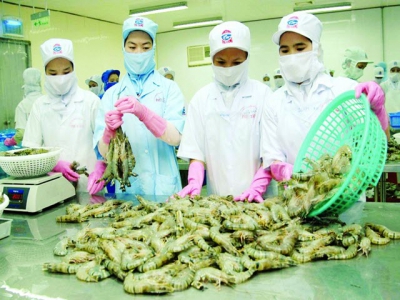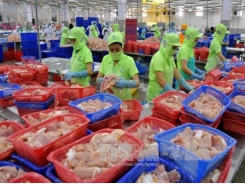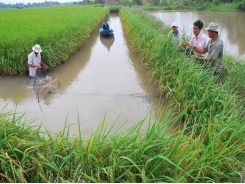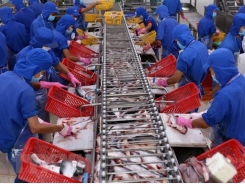New US regulations expected to hurt Vietnamese shrimp exports

The US has imposed strict regulations on imported shrimp, which are expected to affect Vietnamese exporters.
Regulation of the Seafood Import Monitoring Program (SIMP) impose certain reporting and record keeping requirements to prevent illegal, unreported and unregulated (IUU) seafood from entering the US. This is a risk-based electronic traceability program, requiring the importer of record to provide and report key data from the point of harvest to the point of entry into the US, on a list of fish and fish products identified as particularly vulnerable to IUU fishing and/or seafood fraud. In April 2018, the National Oceanic and Atmospheric Administration (NOAA) added shrimp to the list. Under the regulations, importers must be US citizens; they must obtain an International Fisheries Trade Permit from NOAA and declare necessary data to ensure legal imports. Such data must be kept for at least two years.
SIMP requires additional data to be reported at the point of entry into the US or retained by the importer of record for imported fish and fish products identified as priority species due to the risk of IUU fishing and seafood fraud. Importers of record are identified to US Customs and Border Protection (CBP) on each entry filing and they must keep records regarding the chain of custody of the fish or fish product from harvest to point of entry into the US.
In early March, the US Department of Commerce (DOC) announced preliminary results of an anti-dumping tax on Vietnamese shrimp during the 12th period of review from February 1, 2016 to January 31, 2017, amounting to 25.39 percent, much higher than the previous reviews.
Shrimp exporters are warning that the high anti-dumping rate and the SIMP regulations will slow down the expansion of shrimp exports to the US.
Although they reached US$1 billion plus in the first four months of 2018, up 13.8 percent from the same period last year, Vietnam’s shrimp exports in April dropped 0.4 percent compared to April 2017. This is partially attributed to the increased anti-dumping rate.
The Vietnam Association of Seafood Exporters and Producers (VASEP) recently suggested that the Ministry of Agriculture and Rural Development accept its solutions for sustainable development of Vietnamese shrimp production and exports. According to VASEP, SIMP is a major obstacle for Vietnamese shrimp. VASEP has urged the government to continue engaging in high-level diplomacy to convince the US to remove trade barriers, especially the anti-dumping duties on Vietnamese shrimp.
VASEP recommends that shrimp farmers adhere to such international standards as Aquaculture Stewardship Council
(ASC) and Best Aquaculture Practices (BAP), and form international-standard shrimp farming facilities.
Related news
Tools

Phối trộn thức ăn chăn nuôi

Pha dung dịch thủy canh

Định mức cho tôm ăn

Phối trộn phân bón NPK

Xác định tỷ lệ tôm sống

Chuyển đổi đơn vị phân bón

Xác định công suất sục khí

Chuyển đổi đơn vị tôm

Tính diện tích nhà kính

Tính thể tích ao




 Many challenges await Vietnam’s shrimp export to US
Many challenges await Vietnam’s shrimp export to US  Vietnam eyes stronger export of aquatic products to…
Vietnam eyes stronger export of aquatic products to…